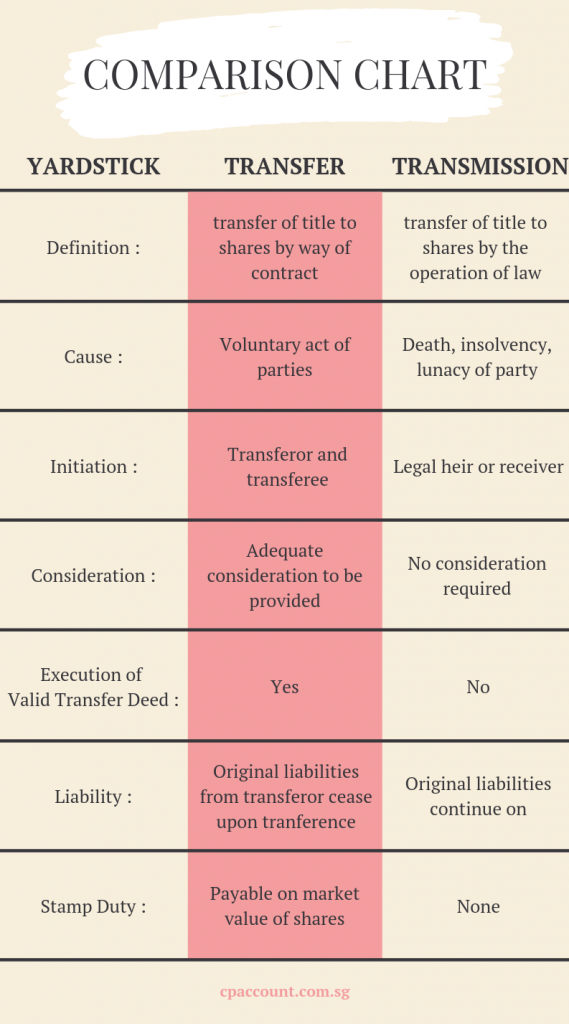For the title to shares to be legally passed over from one person to another, there are 2 ways to go about doing so.
The more commonly talked about method is share transfer. Share transfer is a voluntary act initiated by the shareholders by way of contract. To legally transfer the title to shares, an instrument of transfer is required. An official document clearly stating the intention of the transfer of shares from one party to another is to be enacted.
The other method is by share transmission. Share transmission occurs by operation of law upon a shareholder’s death or insolvency. An instrument of transfer is not necessary, unlike a share transfer. The death of a shareholder in itself will initiate the passing of title. This applies regardless of whether the shares are in a public or a private company.
Receivers of Share Transmission
With regards to who your shares might be transmitted to, there are rules on share transmission in the company’s constitution. As such, the share transmissions are subject to the respective rules.
Often, a company’s constitution specifies a class of potential receivers. The following is based on the Model Constitution with no amendments made to its rules.
Joint Shareholder: The other shareholders will be recognised as the receivers of the legal title to your shares.
Sole Shareholder: With the demise of the sole shareholder of a company, the deceased’s will is to be looked at to determine the intended receiver. In the absence of a will, an administrator will have to apply to court to obtain the Letters of Administration in order for the court to be able to grant him/her the authority to handle the deceased’s assets.

